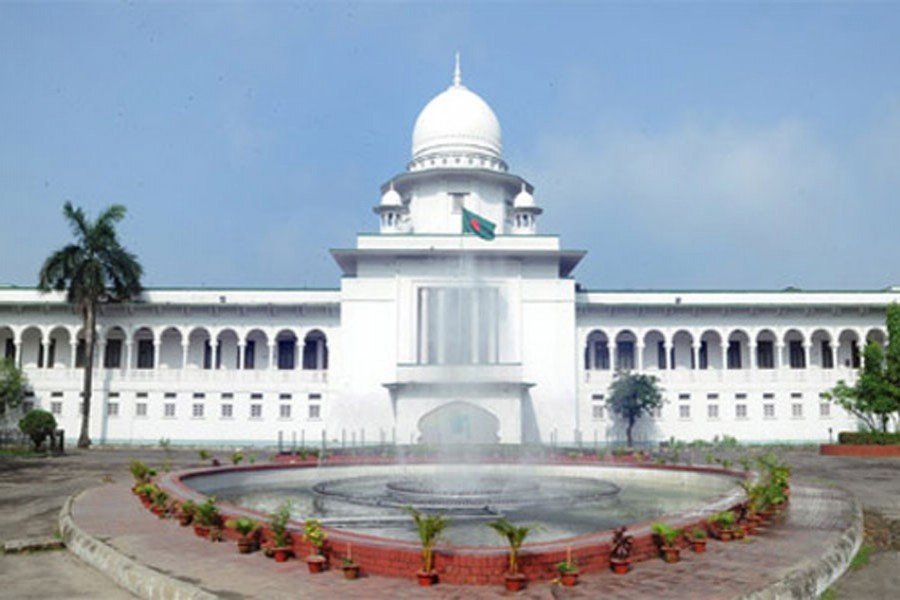There is no alternative to the system of alternative dispute resolution (ADR) for freeing the judiciary from the huge backlog of cases, said the country's law minister recently. Around 3.3 million cases are now pending with courts. There is only one judge for around 2,000 cases and on that note the ADR can play an important role.
Some laws were formulated earlier to encourage the ADR system, but the people were not getting its result as there is no legal aid office at the district level. The government has given priority to the ADR for this purpose and is working to ensure the rights of people to get justice, the law minister said
Disputes, in fact, arise in all organisations. Dealing with a dispute constructively can enable the organssation to achieve its ultimate objectives, save on resources, avoid financial exposure, and protect its reputation.
In contrast, failing to effectively manage a dispute can negatively impact an organisation damaging its internal and external relationships and morale. It is beneficial for an organisation to have an effective dispute resolution strategy to ensure that it consistently uses the most appropriate forms of dispute resolution.
In order to add value the strategy needs to reflect the organisation's mind-set, be flexible, and outcome-focused. The ultimate goal of such a strategy is to ensure that disputes are managed in a way that is in the best interests of the organisation while also being cost-effective and capable of protecting the organisation's reputation.
ADR is a widely accepted and appreciated method for reducing the number as well as cost of suits. Many developed and developing states have gained tremendous success in reducing backlog by adopting ADR.
Disposal of suits and litigation through ADR is bound to enhance the quality of social justice and thereby contribute to promotion of harmony and peace in society, both of which are pre-conditions for meaningful development in social, cultural economic and other spheres.
Mediation, conciliation/reconciliation, arbitration and other forms of ADR are important vehicles for promoting social harmony. ADR is also an alternative route for reaching a speedier and less-expensive mode of settlement of disputes. It includes mediation, settlement of disputes, arbitration and other ways that are voluntary and not compulsory.
Most countries have adopted ADR mechanism and achieved tremendous success in reducing backlog and increasing access to justice for the poor. The concept of ADR was first inserted in Section, 10(3) and 13(1) of the Family Court Ordinance of 1985, wherein there is provision for compromise or reconciliation even before pronouncement of judgment.
However, there was no implementation of the provision until a special pilot project was taken on 'Mediation as a measure of ADR' in June, 2000, under the supervision of the then chief justice of Bangladesh. Under that project, three assistant judge's courts of Dhaka were specified as exclusive Family Courts for the purpose of mediation.
At that time, a circular was issued from the High Court Division of the Supreme Court providing credit of two trials for one successful mediation in a family dispute and the credit of one trial for two unsuccessful mediations. This circular inspired the Family Court judges to give more efforts to mediation in Family Court cases, achieving success in disputes resolution through "mediation" in the family courts. The great success in realisation of dowry money and amicable, peaceful and quick settlement of disputes through mediation in the Family Courts inspired the policymakers as well to widen the scope of ADR through other legislations.
Accordingly, ADR mechanism was introduced for the first time in general civil litigation in 2003 by the Code of Civil Procedure, and by the Artha Rin Adalat Ain (Financial Loan Court Act) respectively. The Code of Civil Procedure (Amendment) Act, 2003 embodied two new sections (89A, 89B) designed for ADR mechanism in all civil suits and cases.
In this context, the Bangladesh International Arbitration Centre (BIAC) deserves appreciation for making substantial progress in popularising the concept of ADR among various stakeholders including the government, banks and financial institutions, corporate houses, lawyers and even law students. Law and policymakers have realised the need for alternative measures where mediation has started to feature in a subtle but definitive way.
The BIAC has made a number of achievements in applying best practices of the ADR in the country by facilitating arbitration and mediation and also by arranging training programmes on the ADR at home and abroad for representatives from banks and financial institutions, government, legal fraternity, corporate institutions and students of law. The government, in the meantime, is working on incorporation of ADR in different existing laws in order to make the dispute resolution system easier and less time-consuming. Some economists are now praising the role of the BIAC for settling commercial disputes out of court during the last seven years.
Bangladesh needs ADR-friendly legislation reforms and to engage institutions like BIAC so that international commercial arbitration cases can be held in the country instead of only being directed to Singapore. However, mere inclusion of ADR clauses in contracts is not enough unless laws are amended to make their enforcement easier. In this connection, mandatory provision of arbitration and pre-litigation mediation must be included in the proposed legislation.
If a dispute can be settled through ADR outside the court before it turns into a case, waste of valuable time and money can be prevented. In the circumstances, the country should hasten the process of popularising the ADR system without any delay. There is a need for collaboration through arbitration-mediation where both parties are equally benefited.
Such effort should get prime importance in view of the fact that ADR process can be of great help in strengthening the legal framework, which, in turn, can certainly bring about changes so that people can get justice speedily.


